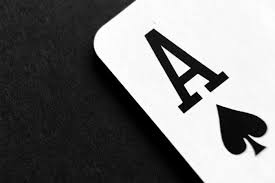The face of online poker has really changed with the rise in the last few years. Nearly everyone knows someone who is involved in the online poker community and you’re likely to find that they have brought their own unique spin to the game. However, the truth is that the majority of players tend to stick to the same old methods and strategies, which makes moving around the web site a little difficult. However, just when you thought that nothing new could be brought to the table, the wipes up the floor with Java Shockwave and the trend begins again.
What Will I Play?
That’s normally the question you might hear asked in the forums as you try to figure out what exactly the trend towards online poker88 means for the game. Typically, the majority of questions are centred around the same two main areas. Do you play more hands online than you did offline? Do you tend to chase flushes more often online than you do in person?
The answer to the question regarding hands played is partially dependent on the individual, and the factors that they put into play. However, if you can accept that the “time to shine” is may be a little different in an online game, then you can understand why this is even harder to accomplish in the online poker community. In addition, the fact that the hands haven’t been pocketed the same as they were in person, doesn’t necessarily mean that the hands have been folded more often.
The chase, or the hope, for a flush can be very hard to resist, when you’re sitting right in the middle of the action, but then again, if the cards don’t really matter and you’re not in position, the chances that you’re enabling the chase, or chase itself, goes down. The main thing to remember here is that you will have to pay closer attention to the betting, and stop yourself from going on tilt, especially if you’re in the thick of a battle.
Conversely, the other overlook option is to fight the tendency to fall into the trap of playing just about any hand. If you’re doing this, you’re going to be difficult to read at times, as you’re playing hands that are difficult to understood in person. This shouldn’t make you particularly bitter, but rather it should fuel you with the desire to become a better player, so that you can push your knowledge of the game to a point where it will pay off, and you will be a stronger player. When you jump into a higher level of competition, you should be mentally prepared, as you want your opponent to completely underestimate you, and you want them to be completely unimpressed with your level of play.
In more detail, you should be playing generally stronger hands in the early stages, and weaker hands in the later stages. This is simply a variation of the staking concept, in that the weaker hands are probably more easily defeated, and the winners are probably more likely to be higher cards. Obviously, if you are battling aces, you want to be raising up the pot, making it more costly for your opponents to call, but in the later stages, you’ll want to be slightly more aggressive in your plays. There’s no need to go balls-out in the middle stages, when the simply don’t have enough hand examples to go with.
The hands you should be raising with before the flop should be: AA, KK, QQ, JJ, TT, and AK. With the exception of pocket pairs, you want to raise 2.5x the big blind. Sometimes you may want to go 3x the big blind if you’re in late position, but for the most part, you want to be raising 4x the big blind, which will make it expensive for people to call. It also makes it easier for you if you have a lot of respect for your competition. If you don’t have many chips in front of you, and you’re in the blind, you should be limp in, raising 1x the big blind, and continuation betting generally.
What you want to do with regard to your opponent once you make it to the flop is to either get a big hand like a set or an overpair, or to make a set by forcing your opponent to fold, or to get a big hand and slow play a lot of pots to set up the opportunity for you to make a big raise with the best hand after the flop. Many times you’ll see a flop with an overpair, and you will be able to get your opponent to fold if they have a lot of trouble calling a standard raise. However, if you don’t have many chips in front of you, a checkraise may not be the best play.
